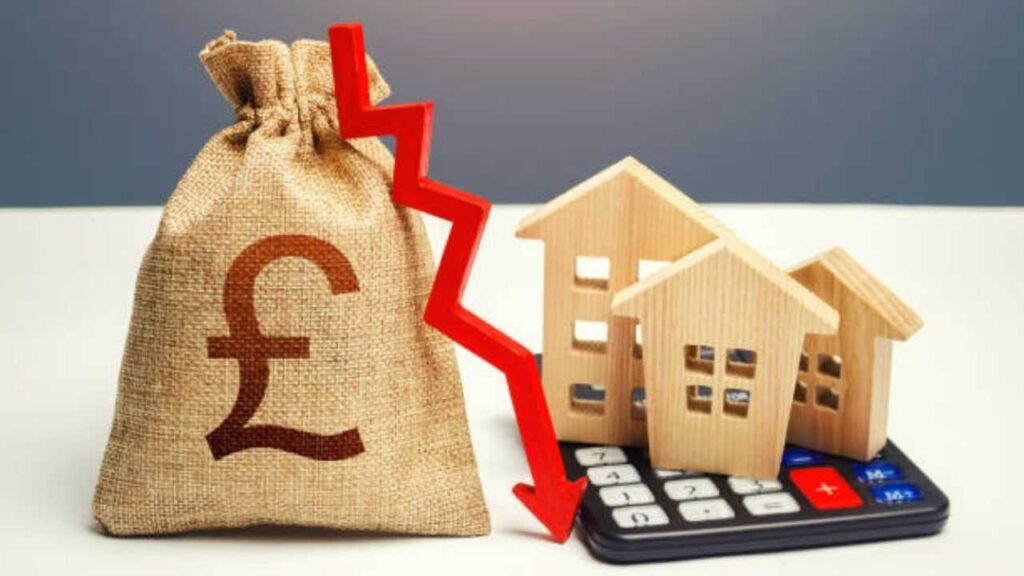In this article, we will discuss how having two mortgages and renting one can be a good way to make money and build equity in real estate.

Having two mortgages means owning two properties with loans. Renting one out can generate income to offset costs, but it involves landlord responsibilities and potential tax implications.
Consider affordability, market conditions, and management demands before proceeding.
Pros and cons of having two mortgages and renting one
Pros of having two mortgages and renting one:
- You can generate income from rent payments, which can help you cover the cost of both mortgages.
- You can build equity in two properties, which can be a valuable asset in the long term.
- You can use the rental income to offset your taxes.
- You can have a vacation home or investment property.
Cons of having two mortgages and renting one:
- You will have to make two mortgage payments each month, which can be a financial burden.
- You will be responsible for the maintenance and repairs of both properties.
- You may have difficulty finding renters, especially if the rental market is slow.
- You could lose money if the rental income does not cover the cost of the mortgages and expenses.
Challenges
- Tenant Issues: Not every tenant is ideal. Late payments, property damage, and other tenant-related difficulties are possible.
- Maintenance Costs: When you own a rental property, you are responsible for all maintenance and repairs, which may be expensive and time-consuming.
- Increased Expenses: Additional expenses may include property management fees (if you hire a property manager), landlord insurance, and potential service costs.
- Complexities in Mortgage Terms: Some mortgage agreements might have clauses about renting out the property. It’s crucial to ensure that your lender permits renting out the property without any penalties.
- Tax Implications: While there are tax benefits, there are also tax implications. Rental income is taxable, and you’ll need to report it. Depending on your overall financial situation, this could impact your tax bracket.
- Increased Liability: You might be held responsible as a landlord for injuries or accidents that take place on the property. Having the right insurance is essential.
Benefits
- Additional Income: Renting out one of your properties could provide you with a consistent supply of money. This can be used to cover monthly mortgage payments, property taxes, and other expenses.
- Property Appreciation: Real estate values frequently rise over time. While you’re renting out the property, its value may rise, resulting in a higher net worth.
- Tax Deductions: Rental properties may provide tax advantages, such as the ability to deduct mortgage interest, property taxes, and maintenance costs.
- Building Equity: As you continue to pay down the mortgage on the rental property, you’re building equity. Over time, this can become a significant asset.
Things to consider
- Insurance: Switch your homeowner’s insurance to a landlord or rental dwelling policy to guarantee adequate coverage.
- Legal Requirements: Learn about local landlord-tenant regulations so you can manage security deposits, evictions, and other related issues legally.
- Property Management: If maintaining the property gets too difficult, consider hiring a property management company to handle tenant issues, maintenance, and rent collection.
- Financial Planning: Work with a financial planner or accountant to understand the full financial implications, including the impact on your taxes.
- Long-Term Strategy: Consider what your long-term strategy is for the property. Are you holding it for the goal of appreciation, revenue from rentals, or something else?
If you are thinking about having two mortgages and renting one, do your homework and make sure you are financially prepared. You should also consult with a financial advisor to see whether this is the best option for you.
Can you have two mortgages on two different houses?
Certainly, owning two homes with mortgages is possible. To secure the second loan, lenders typically require a stronger credit history and a significant down payment. Demonstrating the ability to manage both monthly payments is essential.
A few important things to remember:
- Your earnings and debt- to- income rates
- Your credit score
- How much equity do you have in your first house?
- The value of a second house
- Your capacity to make both mortgage payments on time
Can I combine two mortgages on two different properties?
Yes, you can combine two mortgages on two different properties through a process called “refinancing.”
This involves taking out a new loan to pay off multiple existing loans, consolidating them into one monthly payment. Consult a lender for specifics.
Having two mortgages while selling a house
Having two mortgages while selling a house can cause financial strain. Make sure that you have enough money to meet both payments.
You can explore options like bridge loans or home equity lines for more flexibility.
Decide whether you want to prioritize a quick sale or negotiate terms with lenders to better manage your cash flow.
Can I apply for two different mortgages at the same time?
Yes, you can apply for two mortgages at the same time, but this may complicate your approval process because lenders will take your debt-to-income ratio and credit inquiries into account.
It is critical to notify each lender and ensure that you can meet both financial responsibilities.
Can I rent more than one property?
Yes, you can rent more than one property as long as you meet the landlords’ requirements and can afford the rent and associated costs.
FAQs
Q: How much can I afford to borrow for a second mortgage?
The amount of money you can afford to borrow for a second mortgage depends on your income, debt, and credit score. Keep your total monthly mortgage payments (including the first mortgage) to less than 30% of your gross income.
Q: Is having two mortgages a good idea?
No, having two mortgages isn’t inherently a good or bad idea. It depends on individual financial situations, the housing market, and one’s investment goals and risk tolerance. Proper management and financial planning are crucial if considering multiple mortgages.
Q: Is it legal to rent out a property with a mortgage?
While it’s typically legal, you must check the terms of your mortgage agreement. Some lenders may require owner occupancy or have clauses about renting.
Q: Can I qualify for a second mortgage if I already have one?
Yes; however, your debt-to-income ratio, credit score, employment history, and other factors will be considered by lenders. Rental income from your first property might also be considered.
Q: How does renting out a property affect my taxes?
Rental income is taxable. However, you can deduct certain expenses like mortgage interest, property taxes, maintenance, and depreciation.
Q: What are the risks of having two mortgages?
The biggest risk of having two mortgages is that you could default on one or both of the loans. This could lead to foreclosure, which can have a negative impact on your credit score and make it difficult to get a loan in the future.
Q: Do I need to inform my current lender if I decide to rent out my property?
It is essential to double-check your mortgage agreement. Some lenders require notification or have rental-specific conditions.
Q: What type of mortgage rates can I expect for a second property?
Mortgage rates for investment properties or second homes can be higher than for primary residences. It’s essential to shop around and compare rates.
Q: Do I need a property manager?
It depends on your comfort level with landlord duties and the property’s location. A property manager can handle day-to-day operations for a fee.
Conclusion
While having two mortgages and renting one out can be a profitable business, it is not without its challenges. Good preparation, an understanding of responsibilities, and proactive management can make the journey go more smoothly.
More on Moneyintra
Subscribe to our Channel on Telegram











